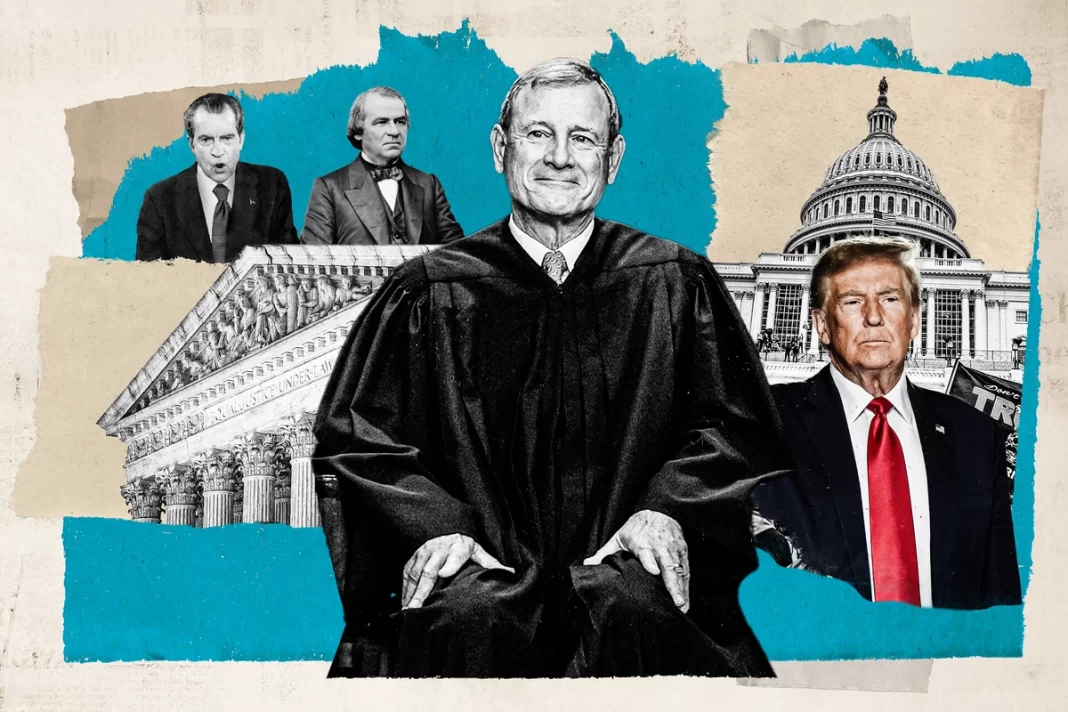President Trump and special counsel Jack Smith have filed competing briefs on presidential immunity.
For the second time this year, the Supreme Court could hear oral arguments on a relatively untested area of constitutional law as it relates to former President Donald Trump and set a landmark precedent that could affect the 2024 presidential race.
Chief Justice John Roberts showed interest on Feb. 13 in reviewing former President Donald Trump’s request the prior day to halt a ruling against his presidential immunity claims in the U.S. Court of Appeals for the D.C. Circuit.
Special counsel Jack Smith responded on Feb. 14, telling the court it should deny President Trump’s request.
Earlier this month, three D.C. Circuit judges rejected President Trump’s claim that the doctrine of presidential immunity shielded him from Mr. Smith’s prosecution related to the events of Jan. 6, 2021.
Mr. Smith had asked the Supreme Court to fast-track President Trump’s immunity appeal, but in December 2023, it declined, letting the D.C. Circuit tackle the issue first.
The appeals court set up a tight timeline for President Trump to request the Supreme Court’s review before the district court continued its recently forestalled pre-trial proceedings. Initially scheduled for March 4, that trial is one of many that could interfere with President Trump’s campaign schedule and raise questions about the judiciary’s relationship with American democracy.
The presidential immunity issue also raises questions about how presidents may contest election results, the threats they could face from future administrations, and whether the Constitution’s separation of powers precludes courts from weighing in on certain presidential actions before Congress.
As President Trump noted to the Supreme Court, the case presents a novel question that could have enormous consequences for future executives.
The “claim that presidents have absolute immunity from criminal prosecution for their official acts presents a novel, complex, and momentous question that warrants careful consideration on appeal,” President Trump’s Feb. 12 brief to the Supreme Court said.
The ‘Outer Perimeter’
Presidential immunity from judicial review has been broadly upheld since Marbury v. Madison in 1803. Although the case established judicial review over executive branch decisions, Chief Justice John Marshall’s majority opinion criticized the idea that courts had jurisdiction over a president’s discretion.
By Sam Dorman









